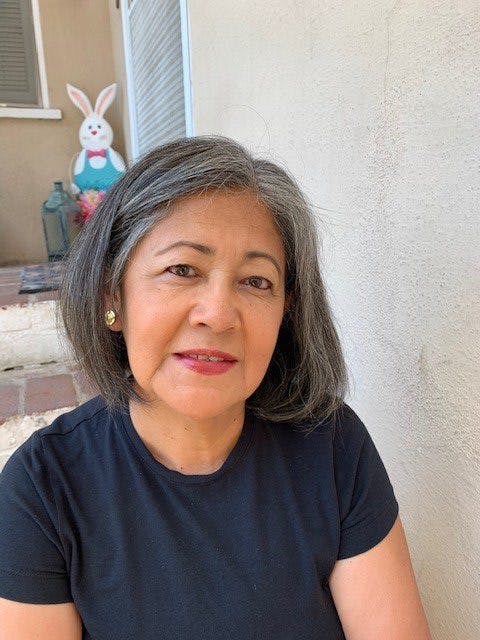Daily Reality of Home-based Child Care Providers during COVID-19
By JunHee Doh and Ernesto Saldana
Esperanza is one of the many women-of-color child care providers who are making great sacrifices for families during the pandemic. “We, providers, live day-by-day. What we earn is very low. We are very nervous, scared, and in need of resources and support,” she shares.
When the doorbell suddenly rings, during the pandemic, it can feel unsettling. Curiosity mixed with fear arises. Is it a package? A parent? A delivery of hard-to-find cleaning supplies? Esperanza rehearses the COVID package treatment regimen: disinfect the box, then the contents, and then wash her hands. Every interaction carries risk.
Esperanza notes, “I know of providers who got COVID-19 and are only receiving ten days sick pay. COVID-19 can last longer than ten days.”
For Esperanza Melo, age 63, a doorbell signals a delivery not of a package, but of a child—a toddler to be precise. Esperanza is a licensed family child care provider who has been able to keep her home open during the pandemic. But, the health and safety of her 80-plus-year-old parents who reside with her are constantly on her mind. As she welcomes the families into her home five days a week with her full-time program, she struggles to keep her family safe while remaining open.
Esperanza begins her day at 7:30 am when the first parent drops off their child. Before COVID-19, her living room was littered with parents playing with their children, inquiring about the day, and she would joyously tell them of the day’s adventures. Amid COVID-19, the number of children served in her home has decreased from fourteen to five. Drop-offs and pick-ups are now stressful, with minimal communication, and parents remain at the screen door. All of the children are from families of essential workers. Even the few families that remain in her care still face financial challenges.
“Some families I currently serve cannot pay me or partially pay me. But what am I going to do? Turn their children away? No, I must provide a space for them. How can I not?!” Esperanza shares. Parents who’ve lost their jobs still need child care to find work. “Abu!” the toddlers and preschoolers shout. “Abu” is short for abuela (grandmother). Esperanza is an extension of family to parents and their children.
After the final pick-ups, Esperanza’s day is not over. With COVID-19 guidelines, Esperanza is expected to clean and disinfect daily, throughout and at the end of the day, all “high touch point” areas and surfaces (toys, doorknobs, light fixtures, counters); the bathroom after each use; children’s individual boxes and crates of supplies; and indoor and outdoor environments. Many home-based providers use their own money or take on risks to cover the financial impact of reduced children and additional supplies. Esperanza and her daughter continue their day cleaning and disinfecting late into the evening.
It is time we recognize the deep value that early educators bring to our communities. Early educators are the essential workers to our essential workers in other industries, and the state must proactively respond to their needs. Here’s what providers like Esperanza need:
- Continued reimbursement to keep ELC providers open and solvent as public health guidelines restrict the number of children they can serve or if providers need to close due to COVID-19 exposure.
- Continued coverage of reimbursing providers for family fees waived, beyond June 2021.
- Continued distribution of personal protective equipment, sanitizer and disinfectant products, and other materials to implement COVID-19 guidelines.
Esperanza works hard to provide for the children she serves, despite the daily risks of contracting the virus. She is among the providers who have, for decades, been underpaid and undervalued as a result of historical underinvestment that has kept these women in poverty—no matter how hard they work. We call on our leaders to invest in this critical workforce and ensure that women like Esperanza have what they need during the pandemic and beyond.
Advancement Project California launched our early learning and care blog series to show how California has the opportunity to take bold steps to build an early learning and care system that addresses the foundations of systemic racism, racial equity, and economic justice. Read more below, and check back daily through January 29th for new updates.
- Tracing the Roots of Systemic Racism in the US Early Childhood System
- Saving What Is Left of Early Childhood
- Daily Reality of Home-based Child Care Providers During COVID-19
- Quality Learning and Care that Women of Color Providers Bring Amidst COVID-19
- Serving Infants, Toddlers, and School-aged Children During COVID-19
- Jumping Hoops and New Ways to Show Love
- The Necessity of Staying Open During COVID-19
- Navigating an Uncertain Reality
- I Am Whole
- State and Local Resources to Support Early Learning and Care
- In-depth Supplement to the Essential Workers to the Essential Workers Blog Post Series
